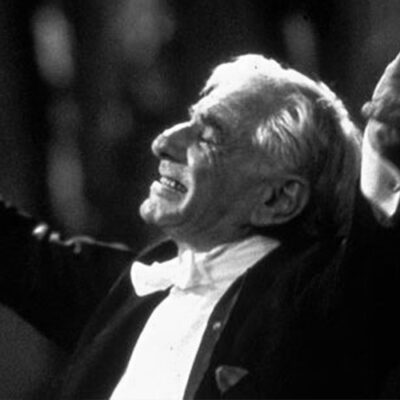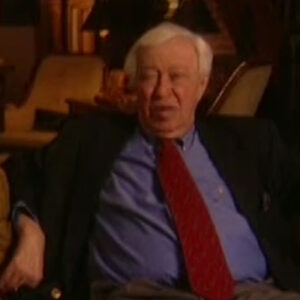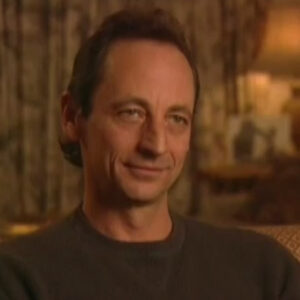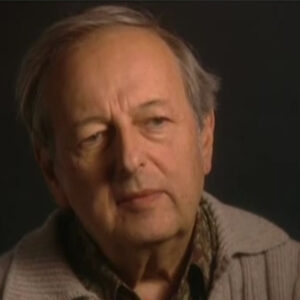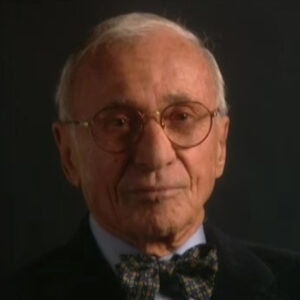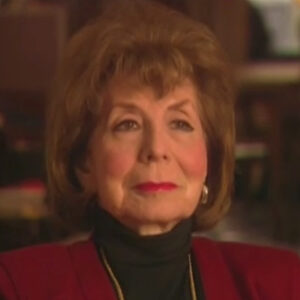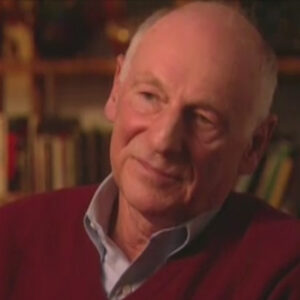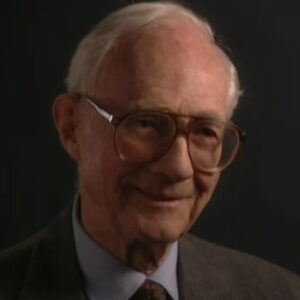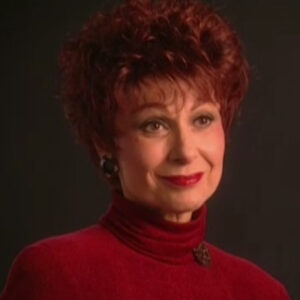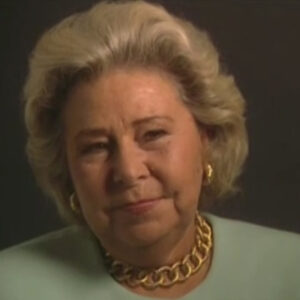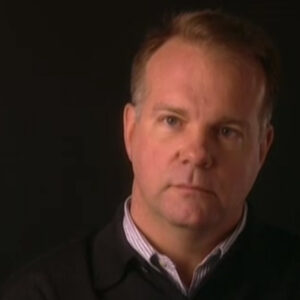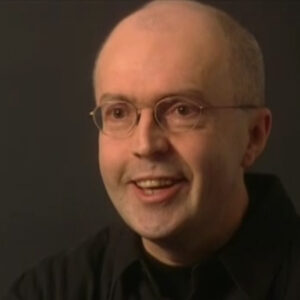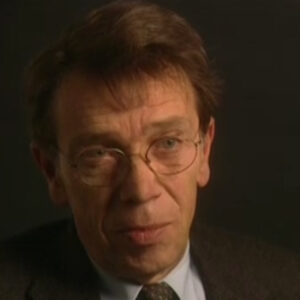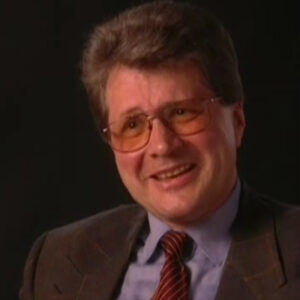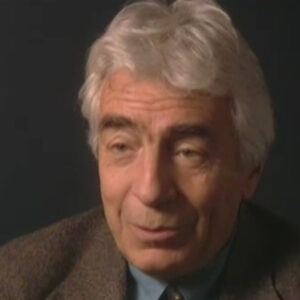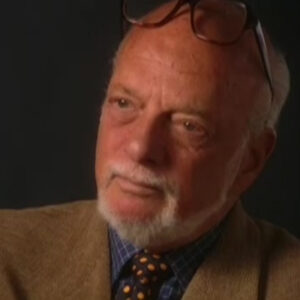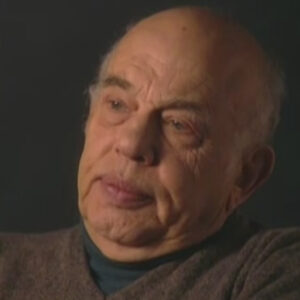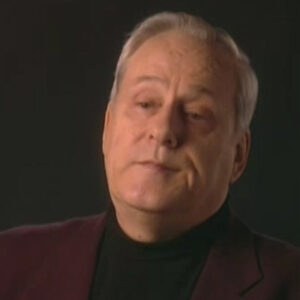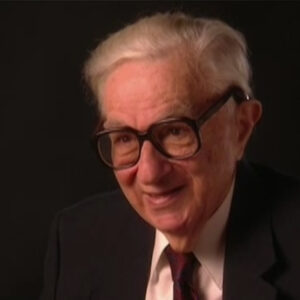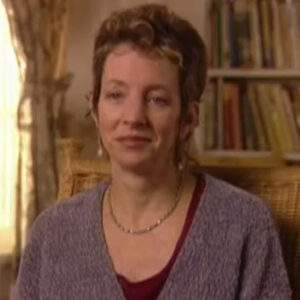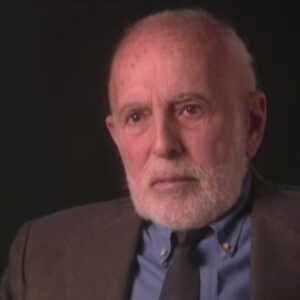Speaker Tell us the back story in terms of what you know of the creation of Saddam and even the various collaborators and all of that before, of course, you get involved, right?
Speaker Well, there were a lot of collaborators, as you know, Dorothy Parker and John Latouche, Bernstine himself wrote the lyrics for I Am So Easily Assimilated. And Lillian Hellman wrote the lyric for Elderado, I believe. And of course, Richard Wilbur came in and when we finally did this original production.
Speaker So there were a lot of writers involved, candids of could you just saw. I don’t we don’t I don’t try not to use a lot of narration in my film. So I would be great if you could just tell us what Candy is. That can be as an adaptation inspired by Voltaire.
Speaker Right. A little bit about the story.
Speaker Well, I don’t you I don’t remember all the stuff I should have phoned up.
Speaker It’s a candid is taken from a story written by Voltaire, and it’s a very episodic kind of story. Different scenes and travels, the travails and travels of Candide and Cunegonde. I have to get Cunegonde in there. I think many people say that that was one of the problems and has been one of the problems in putting it on stage is that it is so episodic. There’s so many scenes. And how do you manage that? Probably would be easier in a film, you know, than than on stage. It was looked down upon by the Catholic Church, certainly originally. And actually, do you know, when we opened in Candied, Walter Kerr, who was Catholic, did not give it a very favorable review. I don’t remember exactly what it was. And, you know, even I think in Time magazine, there was some question as to whether his religious affiliation had anything to do with his review. That seems really I think that’s ridiculous. But there was all this kind of controversy even in when was it, 1956, when we first did Candy. It’s odd.
Speaker It seems odd now, doesn’t it, that there would be that kind of controversy might be helpful for the office that the book store makes for the Catholic Church makes fun of a lot of things.
Speaker Yeah, you just tell me that. Well, and how does it do it? And what if it’s a satire? Yes, it is. And which, you know, attacked a number of things because you talk about some of the things.
Speaker Well, I tell you that one of the reasons I’m so proud of having been part of Kanti candid, it was a satire, but it had really, really deep implications politically and I suppose with religion as well. It was written during the McCarthy era and there was a scene, a book burning scene in in our our production in Lisbon witch hunt kind of thing that clearly was about McCarthyism. And many people at the time said this was a dangerous thing to do to not only to write it, but to to show it on stage. And I remember I was so proud to to be affiliated with something that was making a stand because so many people were not and were late with saying, you know, this is claptrap that he is promulgating here. He meaning McCarthy being McCarthy. So there was a lot of controversy around candied. I don’t think that’s why the reason why he didn’t run as long as it might have. I don’t know. You know, I never saw it up front. So it’s very hard to people often say to me, what do you think about this or that or the other? And I can’t really say because I think unless you’re out front and you really see the whole piece, it’s hard to completely judge a work. It is for me anyway. So at the time possible, it was just just just you know, it’s perhaps perhaps it was a bit sophisticated musically and otherwise. It’s hard to say. It wasn’t really an opera. It’s I don’t know if it’s an operetta, I don’t know. And yet it’s it has much, much greater content than most operettas. It was, you know, neither this nor that. So I think people didn’t quite know which little box to put it into. And that makes people uncomfortable. Do you know? But I do remember that one of the reviewers, I think it was John Chapman, said it was the that the score anyway was the greatest. What do you call it?
Speaker In addition, the greatest addition to musical literature since Rosenkavalier.
Speaker Yes, that was one of the quotes in there that I think fabulous. I think it was Chapman who said that. So there were marvelous reviews, but they weren’t money reviews. They weren’t the kind of reviews that make people beat a path to the ticket office.
Speaker You know, it was sophisticated. It was dealing with complex issues. It was coming up with Voltaire. Yes. And this is all during the time of McCarthy, too.
Speaker Did you get to know him?
Speaker Not terribly. Well, I knew her. I liked her very much. Very, very much. She was a very impressive woman. I’m sure behind the scenes with the brass, there was a lot of contentiousness from things that I have read after the fact. And at one point just before we opened, Lillian took over rehearsals for a week. So clearly she was not happy. But I must say they all behaved perfectly professionally as far as the company was concerned, because we never saw them being angry with one another or having any kind of heated discussions that I remember.
Speaker Anyway, it was the director, Sharon Guthrie. Would you say to director?
Speaker Yes, of course. Are Tyrone Guthrie was the director. I had never worked with him before, of course, nor have I since. Fascinating that they’re one of the funniest men who ever lived, Shirley. And, you know, he did something I’ve never known anybody else to do when he would call rehearsal. Sometimes he would call rehearsal for. Twelve, twenty. It’s like the trains he wanted, you know, he meant it and he really did. He he was able to schedule time better than any director I’ve ever worked with. And, boy, he would say now this is scheduled for twelve twenty five. That means twelve twenty five. That means not putting your shoes on at twelve twenty five. That means we work at 12, 25 and one day Bernstine came in late for rehearsal and he was needed for something. And boy, I tell you old sir Tyrone Guthrie gave it to him right in front of everybody and well Lenny handled it pretty well, I must say.
Speaker It was wild, you know, to see Bernstine being operated that way, said, tell me a little bit about the cast and also saying, you know, what role you played and what you learned from doing Carrousel.
Speaker Well, I had I done sort of minor roles in musical theater, and I had never sung anything even remotely as difficult as going to Gonda and that Aria Glitter and be gay. I forgot what what what you wanted me to say about what is about the cast. Yes, of course, the the cast, with the exception of Max Adrien, who was a very, very respected English Shakespearean actor and perhaps some of the secondary roles, they were all opera singers. And I was I really felt like a fish out of water. And a lot of ways I constantly thought everybody everybody in the chorus could sing it better than I could.
Speaker I did. Well, I’m always glad to do that. Oh, you know, they’re prettier than I am and so forth and so on.
Speaker It was an extraordinary experience all the way around, I tell you, it it was a very high powered experience, not only because of the of the. The talent of the writers, but their personalities, these huge, huge personalities, do you know, Bernstine, just this enormous personality and such a positive, positive force and Guthrie in his own way. This this. Oh, he was very, very tall and his wife, Judith, was always around these two tall people wandering through, he always had his little thermos bottle that he said had tea. And we think it was tea and brandy. That’s what I was told anyway. And she was always fixing his thermos bottle for him. But it never see. I can’t say it ever seemed to disturb him in any way. And Lillian, of course, we’ve all heard about Lillian Hellman and. Well, and then there were the the actors, Bob Brownsville, delightful man, very, very gentle, funny, sweet man who was sometimes like a maniac on stage. However, he really got sort of in a world of his own. I didn’t quite know, you know, exactly what he was doing on stage. Sometimes sang like an angel, of course, Eric Petina. Almost cliche kind of opera singer in some respects, let’s see. I can’t think of his name or Bill Ulvaeus, who played the governor beautiful voice, a mad man also. It was just it was a anatsui kind of wonderful, wonderful time. Well, William Herschel flight was delayed.
Speaker First of all, involved in casting.
Speaker Oh, yes. Lenny was very much involved in the cast. Absolutely.
Speaker Describe your audition.
Speaker Well, the day I went to audition, I had been called by Ethel Reiner, who was one of the producers. And on the phone, she said to me, Can you sing a high C? And I said, yes, even though I had never sung anything over the G right at the top of the scale in public before. But I had a wonderful teacher, Robert Koban, who insisted on my learning arias. And I fought and fought and fought. And finally he beat me down. So I had learned a few arias and I knew that I could sing a high C when I sang these high notes. So to me it was like pretending to be an opera singer. I didn’t take it seriously. Do you know what I mean? So when I went in, Lenny was supposed to come with did come with the conductor. Sam Krok like to hear me sing. I was at Ethel Reiner’s office and she said, perhaps you’d like to look at the big Aria Cunegonde Aria while you’re waiting. So she handed handed me the music for glitter and be gay and I don’t read music, but when I saw this, I saw all those lines there above the staff and I thought something’s really going on up there. And actually it kind of relaxed me because I thought I thought there’s no way in hell I’m going to get this. They’re going to get some big opera saying I’m not going to do this, you know.
Speaker And when he came in. He.
Speaker The door was open there he was, and if I remember correctly, a loden cape that was lined in red. And black patent leather loafers, I’ve never seen black patent leather loafers. He looked great, of course, and and I sang the song that I usually sang then for auditions, Make the Man Love Me From a Tree Grows in Brooklyn. And he said, Well, that’s very nice. And, you know, there’s just little pause. And I said, Well, I guess you’d like to hear some high notes. And he laughed. So I said, Well, I have a version of you I love that I can sing for you. I’ve put a high ending on that. He don’t dancing. You are love. I know exactly how I’d sing. You are love.
Speaker So then I anything planned and this is a big pause and I said, well.
Speaker How I had the guts to do this, I don’t know, I said, well, I guess I could sing Butterfly’s entrance music for you, but I don’t have the music. He said, that’s OK, I know it. I sat down at the piano. Oh, my God, what do I do now? Well. My teacher had not taught me the whole thing, you know, because I’m not an opera student, he just wanted me to to work on this, you know, technically. So there are a couple of phrases that butterfly sings off stage before she comes out. Well, he hadn’t taught me that stuff with the chorus, you know, so we finally got to the place where we’re supposed to begin. I sang the thing I think sang it pretty well, I suppose. And also I didn’t know the ending that most people do, the optional ending, which is a lower, really prettier ending. But I sang the I think it’s a D or maybe a D flat ending. Right. We hang onto this note. Well, boy, when I did that, he really perked up and he said, well, my dear, you have great musical courage as a Jimmy. And I got a lot of guts, I still wonder that I had the courage to do that because, you know, I really didn’t know what I was doing. I was just sort of doing it. So they decided that that I should work on the aria with Sam, like the conductor. And of course, my teacher is saying all the time, you can do it. You can do it. Of course you can do it. What do you mean you can do it? Yeah, yeah, yeah. All that stuff. And I worked I had maybe four sessions with Sam when I first started learning this. I couldn’t even get through it. I could not. It’s like, you know, when you’re coming home from the grocery store and you got heavy bags and every now and then the muscles just won’t do it. You have to sit them down for a second. And that’s what happened for me with this aria. My muscles simply would not finish the side just wouldn’t work. Yeah. Glitter and be gay. So I had to it was kind of like a sporting event. I had to build up the muscle strength to simply be able to finish it, forget whether I did it well or not, you know. So after a few sessions with Sam one day he said, well, Lenny’s going to look in on us today to see how we’re doing. And they very nicely didn’t tell me that this was the day that he was going to decide whether I could really do this role. I thank goodness they didn’t because, well, you can imagine how nervous I was. And, you know, I. I wonder now it’s so funny, the dichotomy of of being a person who’s always kind of nervous and, oh, everybody’s better and all this stuff and at the same time having very clear, strong ideas about how I wanted to do music. So much so that when I was working with Sam, I changed a couple of phrases. And I you know, I changed things slightly from the way he had written them. So I was a little nervous about his hearing this for the first time, too. But he liked it all. He liked the changes. In fact, the little things, you know, are now written into the score. Yeah, well, there’s a line in glitter and be gay. Yeah, sure. There’s a line in glitter. Big Begaye that goes.
Speaker What the hell is that?
Speaker Oh, it’s here, I drew my wings here, I drew my wings, and it’s a high sea, right? Well, Lenny wrote it to me here. I drew my wings. And you told the. Well, that was kind of hard for me to do. It was easier for me to do. To do a glissando, you know, but and actually it made more sense because that’s what you see here, I drew my wings. And so you can drop your wings, right?
Speaker Well, he seemed to like that he hadn’t written it that way, but he was perfectly pleased with that little change I made. And later on during rehearsals later on in the song, too, there’s I’ll take I’ll take their diamond necklace. I did a kind of zing spiel kind of thing. And I think it’s Guthrie’s sort of encouraged me to to do that kind of thing, to to use the music and and what was going on underneath in that way so that I didn’t actually sing the notes. And again, the Bernstein was delighted with what I did. Thank goodness. Just say this. Let me tell you a couple more things about all of that. And as part of the audition process, Lenny had me sing. He would just give me phrases to sing in different rhythms, you know, like a five four bar. He wanted to be sure that I had a good rhythmic sense because a lot of this music is written in Audemars. And one day he asked me if I knew how to trill. And I said, no, but I can fake it, and he laughed, he said, that’s OK. This is practically everybody else fakes it anyway. So he was. So helpful, do you know, and never, never putting me down because I didn’t read music and was not really a music student in that sense. Now, when we had our first interview. Oh, God, this is embarrassing. When we had our first interview, that very first day, he asked me, he said, where do you go to school? I opened my mouth to say, girls, I thank God I didn’t, because, of course, what he read is Juilliard or Curtis Institute or something like that. Oh, and I think now my word my naiveté, had you had you hadn’t got music.
Speaker No. No, I had not I had not gone to music school.
Speaker I, I don’t know, music theory and all of that. And I don’t read.
Speaker I should I suppose I just. Yeah.
Speaker I don’t remember what I said. I do remember I opened my mouth to say Girls Hiker’s Harbourfront Lana and I met the girl so I remember I opened my mouth.
Speaker It didn’t come out and I guess I think I said I didn’t go to school. You know, I finally got through to me that he meant music school, said, oh, sorry, I forget.
Speaker I get so excited now you can come.
Speaker It’s pretty early in your career, but you don’t spend carrousel, right?
Speaker Yes, I did Carrousel before that, I had done Carrousel and Oklahoma, not the original productions, Carousel and Oklahoma and mainly plain and fancy. I done two Broadway shows before them I had done for Kahului, which didn’t last very long. And then I did Plain and Fancy, which had a nice year run cufflink.
Speaker Guthrie was a real legend in the theater. Could you just say that as a couple of things he had done that?
Speaker I don’t even know what. He certainly was well known for Shakespearian stuff, wasn’t he? Did he? I think Shakespeare. Well, Will, I know of the one of the best Shakespeare’s I ever saw was his Troilus and Cressida that I saw here after Candide was done. I don’t know a lot about his background. Perhaps somebody else could do that better than I could.
Speaker I mean, I actually can’t remember anything, but yeah, I was well, he helped.
Speaker He he was there helping them get that off the ground, if I. I think I’m correct about that.
Speaker So what were your rehearsals like? I mean, who you got time. We got three million home stepping in now and then saying I’m going to conduct rehearsals for a while. It must be very interesting how that came about. You got ready hovering over everything. I mean, what was I mean, in the books when you read about this sort of panic was raining, you know, until of night. But up until I mean, that was sort of a kind of nerve wracking situation where you were there. Was the cast aware that, well.
Speaker We started rehearsals without having the whole book written, and the score wasn’t thinks we’re not finished, I’m assuming that they had to go then for who knows what reasons, theatre bookings and and I suppose money and stuff like that. I’ve no idea. I don’t remember a sense of panic except my own panic about whether I could do this thing or not. Do you know, it certainly was a high powered time, though. All these stars and they were all stars, Guthrie and and Bernstine and helmed. These are big stars. Do you know, I’m sure a lot of people were worried that we went into rehearsal without having finished things. But do you know the things they came up with was so brilliant. I remember we started rehearsals without we had no ending to the show. Make our garden grow. That beautiful, beautiful song had not been written yet. And one day during rehearsals, we got the poem from Richard Wilbur, the lyric, and it was so beautiful. And I remember thinking, what must it be like to be Leonard Bernstein? You’re supposed to go home now and write something that comes up to this day, you know, and of course, he did magnificently and well. I’m getting teary now when we first. Such a beautiful day when we first heard that gorgeous music.
Speaker Oh, I’m pretty proud of that part of it.
Speaker Oh, well, it is, and and we were also thrilled because I thought, you know, how is he going to do this? And of course, he did it brilliantly.
Speaker So there’s a real sense among the cast and people working on the show that this was going to leave, that yes, there was.
Speaker You know, it’s impossible when you’re working on a show, it’s impossible to tell whether it’s going to fly or not. It’s impossible. Nobody can. But certainly you can be so aware of quality. And from day one, I was really aware that this was special, very special stuff.
Speaker Did you ever see you do that with you?
Speaker It seems to me that.
Speaker It was a truly it was a work that really exemplified Lenny, is that his philosophy about what work of art should do?
Speaker I don’t I don’t know about that. Tell me about it.
Speaker Well, I think he was quoted at the Brandeis Festival that man’s capacity for laughter is no greater than his divine gift of suffering. And it can really kind of in that spirit at the same time, combined, as you said earlier, Lay’s desire to create work that really did address social issues and right there in the world and make it very grows about that.
Speaker Well, I guess all all that you’re saying speaks again to the time we were in, you know, and. God, I you know, it’s so easy. Well, of course, I’m older than you guys, but it’s so easy to forget how we were just waiting. Waiting. I was waiting for somebody to say McCarthy is just full of shit.
Speaker Come on, do you know we were waiting for Eisenhower to come? It took him a long time to, you know, here he is. He’s saying George Marshall is a car, a communist.
Speaker This is insane. And people were not speaking up and and to be in to be in a piece that was that was trying to address these issues in the way I thought they should be addressed and so many liberals did was just magnificent thing.
Speaker Was it entirely clear in the show that this was about McCarthy was well edited out there of the un-American activities scene?
Speaker Well, it had to do it. Had to do it. My memory is not totally wonderful on this, but as I remember, it had to do with the scene in Lisbon that was really about witch hunting and about book burning. And somehow it was written in a way so that for most intelligent people who were picked up on political events, it was clear that this was a statement against McCarthyism.
Speaker How on the show about.
Speaker Two, two and a half months, if I remember correctly, she says, yes, the show ran about two or two and a half months. We open in December of 1956, early December, I think, and ran through. January, maybe into early February, I don’t remember exactly, it’s around a couple of months, so it must have been a big disappointment because it was a huge disappointment. At the same time, my life suddenly became a lot easier because basically I had no real life when I was doing this show. Opera singers now think it’s. Miraculous that I sang that role eight times a week, and the truth is, you know, I just didn’t know enough to know that I wasn’t supposed to be able to do it.
Speaker You know, it’s like bumblebees don’t know. They’re not supposed to be able to fly, so they fly. So I just I didn’t know that this was.
Speaker Unheard of, and it was a very, very heavy role. You know, I told you I had never sung all these high notes before and one night during rehearsal, I was very quiet and my husband said, What are you doing? I said, I’m counting. The high notes. There were written at that time for the role.
Speaker There were there were four E flat over Heisse. There were. Six D flat. There were.
Speaker Sixteen B flats and 21 high seas. 21 now some of these are not alone, some you know, some in quartette, some trials and some with the whole company, but it’s written there.
Speaker Eight times a week, that’s madness.
Speaker Is that at one point during rehearsals? I was called out of the rehearsal in the theater to answer the phone. It was Lenny. And he said, how high can you hum? I said, I don’t know. I have no idea. He said, well, hum for me. So I did all this humming and the next day we had a new opening for the second act, Irra Petina and myself. At that point in the show we were we were scrub ladies and the second act opened with a scrubbing the floor and Eero was singing some new melody and I was singing a contrapuntal humming line above her, giving the other actors just kind of like anything I have to do. Well, one of the things I remember about auditioning for Lilyan, the only thing I remember she asked me, she said, do you think do you think you can play a young lady from another place and another time? Of course, I said yes, I had no idea whether or not, but she seemed very I think she wanted to know what she didn’t want me obviously to look to American in this particular role.
Speaker Tell us about the part of the kind of Ganda kind of Ghandour.
Speaker Was the sweetheart, if you will, of Candied, and she’s killed several times and comes back to life, it’s one of those stories. She’s raped, she’s plundered and oh, they’re very there’s one of the best moments is one of the songs when they meet again after she she has he thinks she’s what she is dead. And she comes back, he says, oh, I can’t remember the lyric, dammit.
Speaker What is the name of the song?
Speaker Oh, is it true, is it you can’t eat, oh, my dear, oh, my love.
Speaker I can’t remember the damn thing. It’s so good shoot, I can’t remember I can’t remember the lyric. It’s a oh. Well, I’m worried because, you know, that you were shot and bayoneted to that is very true. He says you were shot and bayoneted, too. That is very true. But love will find a way that I guarantee I can’t rule the name of the aria.
Speaker De de de de de de da da da da da da. So it’s well, you know, it’s so human because these people are absolutely at cross purposes and it’s like the two lovers who are talking to one another and all they are doing is hearing themselves. Do you know? And everything they’re saying is bouncing back off the other person. And what they’re saying is coming back to them rather than listening so that they’re there. They’re agreeing to do totally opposite things in their lives. Do you know it’s so funny. It was so cleverly done.
Speaker OK, I just want to get I think they they have enough, they have it, so she’s Voltaire’s girlfriend and all these terrible things, not Voltaire, candied, candied sweetheart.
Speaker And their their teacher is Dr. Pangloss, who has told them that, you know, this is the most perfect of all worlds and everything is hunky dory no matter what. Everything’s great. So Candide goes off into the world, this complete naive, completely naive person. And of course, all these terrible things happen to him. But he’s still coming up and saying, yes. But Dr. Pinder says this is the best of all possible worlds and there’s great humor to be found in that.
Speaker It was ultimately very optimistic. I mean, yes, it was kind of very cynical and Letty’s pretty optimistic spin on it.
Speaker Would you say that would be accurate way here?
Speaker Well, it is certainly a very cynical story. And yet at the end. One doesn’t feel that way and one feels uplifted, I believe.
Speaker And particularly with that music, make our garden grow.
Speaker Oh. That that song wow, you know what that is?
Speaker I guess that is 17th birthday at Tanglewood.
Speaker I was there. Yes, yes. Unfortunately, I didn’t sing that night. I’d been in Europe when the invitation came. And when I came back, I had piles of mail and I didn’t get to it until it was too late. Their program was all settled, but I was there in a hole in the hole. It was a wonderful, wonderful night. Yes, yes. I was there that whole weekend and he. Oh, my.
Speaker Remember that letter from that that weekend?
Speaker Well, do you know he was so generous of spirit.
Speaker So loving and.
Speaker All those hugs he always gave people, if I remember correctly, that weekend mass was done by I think it was a student group from somewhere in the West, if I remember correctly, Denver or something. I can’t remember. Maybe I’m wrong about that. And I love that piece Mass. I think that piece is never gotten its due critically. I can’t understand why there was so much negative criticism, you know, so much negative stuff about it when it first was written. I don’t understand that at all. The very things he was trying to do were disparaged. The his whole idea of of mass was the idea of bringing people together. And what he did was the very eclecticism, the musical eclecticism he used to illustrate bringing disparate things together. Was it just vilified by some people? That’s extraordinary to me that they could have missed the point, so it’s insane, makes me angry, really makes me angry. And Mass was done that that week and I thought it was not a great performance. But you certainly I don’t know what what Lenny thought, but he was, of course, hugging all those young people. And I loved hearing the music again.
Speaker And he conducted one of the Tchaikovsky symphonies. That weekend, I can’t remember the number, but do you know?
Speaker It was as if as if he were a great, great singer.
Speaker And the the ah, the orchestra was his voice. And it was a magnificent performance. I’ll never forget that. I’m so sorry I didn’t sing that night, but when I’m so happy, I could be there.
Speaker I know they wanted you to.
Speaker Yes, yes, the whole place is you couldn’t do it, so find the way I felt, I think Christopher because I, Questa Ludvig and Vun Star sang and oh, gosh, a lot of people now over the years, Candy has gone, as you know, several transformations.
Speaker Have you seen any of the different versions?
Speaker I’ve seen the ones that Hal has done. I haven’t seen the others in the Scottish Opera did one. Well, it’s been done many different places. The only other productions I’ve seen, though, are the ones that Hal has done Helprin’s and how they look different. I think the original take on it was a little more serious. Hal sees it as a kind of circus. I don’t know if you saw the very last production that he did, but I think he’s always seen it that way. It was a different take on it originally.
Speaker And I think the Scottish there is a totally different take altogether. Is it?
Speaker Got the job done right, which I’ve never seen before, but that’s one of the best ones I’ve heard the recording and it seems seems quite good to me.
Speaker It’s an interesting work in that it doesn’t seem to want to go away. I mean, it’s true. Quite I guess maybe now has it.
Speaker Well, since this last production wasn’t successful, I think people will be scared off for a while, but probably somebody will do it again. It’s true, it has had such a life. It’s an amazing thing, isn’t it?
Speaker Do you have any other observations?
Speaker Well, I about the aria glitter, Miggy, I think I think most singers make big mistakes with that aria. I think they see it as a comedy song. And so what they do is they act silly and act funny. But it’s so it has to be so real. And that’s what makes it funny. It must be done absolutely. For real. Like super real. Do you know. And and then it has substance and and great humor. And I think, too, very often. Even from conductors, I think I think the piece is a isn’t seen as a whole enough so that it has a whole long arc. Do you know that’s all the stuff I learned so much doing, Candy? I must say, it was like a little musical education for me in itself.
Speaker And did you interact a great deal with learning in the process? Yes. Yes, very much so. So what kind of things?
Speaker Well, again, what I just said line, I’d been dealing with that with my own with my voice teacher. But to have all of that reinforced and and to be able to use it in such a practical way. Do you know also Sam Kamahl? It was a really fine conductor, too. I hear conductors. I’m thinking mostly now about glitter and be gay because people keep sending me different versions. And it’s amazing how conductors I think, you know, that the I don’t know. It seems obvious to me the whole end of that, how it has a kind of musical build and people often let it just sort of fall apart for some reason.
Speaker I’m very, very disappointed that it wasn’t considered to be a success.
Speaker But he was disappointed originally. Yeah, well, we all were wasn’t considered to be a success.
Speaker A long time for it to finance the closing night of Candide in New York was, if anything, even more exciting than the opening night, which was unbelievable. The overture, the overture stopped the show opening night, stopped it cold, and we thought they were going to have to do it again in the show. I mean, you just never have heard such applause. I never before or since I’ve ever heard of such a thing. And of course, now I’m told that the Candid Overture is the most performed piece of music by symphony orchestras in the world. It’s pretty extraordinary, isn’t it? And opening night, there were there were friends of mine in the company who were well, they were very proud to you that, you know, that I didn’t have the musical background, that one normally would have to do this score. And they were so proud of me and thought I did it. Well, I think and there was one guy in particular whose name I can’t remember, every single performance stood in the wings and timed my applause after that game and at the end of the week gave me this whole list, but so sweet of him. The opening night, the applause was over a minute. It was like maybe a minute and fifteen seconds. That’s a long time, you know. Amazing. And then on on closing night, I don’t think it would have been possible to get one more human being in that theater anywhere, because there were people even backstage up on the on the up in the flies, on the catwalks, leaning over the rails. Just you’re not supposed to do that, you know, but they did it anyway. And then at the end of the show, when the curtain was closing, the people were standing up screaming, no, no, no, no. It was it was an extraordinary event.
Speaker Yeah. Yeah.
Speaker So, you know, there was an enormous amount of bickering going on among all these guys and, you know.
Speaker Yeah, not at all. We were not aware of it, though.
Speaker I was I was not well, you know, I was so involved with singing this score and it was very, very difficult. So a normal person might have noticed all this bickering. But I was so involved with putting one foot in front of the other and putting one note after the other and trying to get this together that probably, you know, I might have missed things that someone else might have seen, but I don’t have any memory of any kind of contentiousness between them.
Speaker Really melancholy. The most unpleasant experience. And you had. Yes, I have since learned all of this.
Speaker Oh, I just want to ask this.
Speaker Do you have any other do you have any other anecdotes or other observations you’d like to make about Lenny or what impact you think he has had in terms of musical legacy and like.
Speaker Well, do you know, I do think as far as musical theater is concerned, Lenny has made an enormous contribution because he he introduced.
Speaker Really complicated rhythmic patterns and odd bars and doing that kind of thing, that usually is done only in classical music and he introduced think of all those exciting rhythms in on the town and and west side that I think people take more for granted now that that kind of thing is more in our ears, because even the Beatles finally did that kind of thing, you know, but surely he was one of the first to to help the general audience come to that kind of music. It’s a great contribution.

